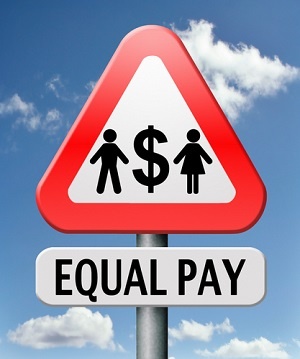 On October 6, 2015, Govenor Jerry Brown signed one of the most stringent pay equity laws in the U.S. The California labor law, SB 358, allegedly takes California employees a step further towards closing the so-called "wage gap" between men and women.
On October 6, 2015, Govenor Jerry Brown signed one of the most stringent pay equity laws in the U.S. The California labor law, SB 358, allegedly takes California employees a step further towards closing the so-called "wage gap" between men and women.
California Labor Law and the Gender Wage Gap
According to a U.S Census Bureau report this year. women in California who work full time are paid less than men at a median rate of 84 cents for every dollar. Although these figures have been touted by advocates of fair gender pay issues, there are also other factors that opponents of the law claim are not being factored in the arguments.
Good for Female Employees, Bad for Employers?
According to an article from the Los Angeles Times:
Businesses said they expected more lawsuits once the new rules take effect Jan. 1.
Courts have interpreted current law to mean that male and female workers must hold exactly the same jobs to require equal pay, said state Sen. Hannah-Beth Jackson (D-Santa Barbara), author of the legislation.
“Now they're going to have to value the work equally,” she said.
California and the federal government already have laws banning employers from paying women less than men for the same jobs. The new California Fair Pay Act broadens that prohibition by saying bosses cannot pay employees less than those of the opposite sex for “substantially similar work,” even if their titles are different or they work at different sites.
The problem for many California employers is that the new law will mean more employees potentially taking more employers to court, according to J. Al Latham Jr., a labor law attorney and lecturer at the USC Gould School of Law.
“It is going to lead to lots more litigation, which further weakens the business climate in California,” he said.
This was supported by labor lawyer, Geoff DeBoskey, who agreed, saying it was significant to change from requiring equal pay for equal work to mandating equal pay for substantially similar work. He predicted that this will drive some businesses out of California.
According to DeBoskey, employers will “move operations and grow elsewhere. If an employer is going to build a new call center, they are just not going to build that in California.”
The new law is the strongest in the country, according to the National Partnership for Women & Families, a Washington-based nonprofit advocacy group for workplace fairness.
Staying Informed and Getting Assistance
Company policies reinforce and clarify the standards expected of employees and help employers manage staff more effectively. HR policies that are comprehensive and up-to-date will provide the documentation for businesses faced with possible litigation arising from employee disputes.
If you have questions regarding this, or other HR issues and practices, let us help you in managing your HR needs, payroll processes, and staying on top of compliance demands. Get your Free Download: Payroll Outsourcing Guide to help you make an informed decision or call Accuchex Payroll Management Services at 877-422-2824.


